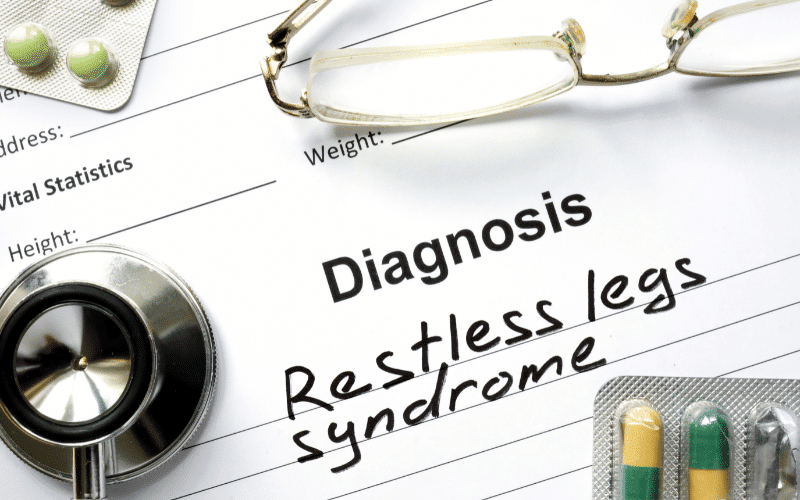Disorder 3: Restless Legs Syndrome

Restless Legs Syndrome (RLS), also known as Willis-Ekbom Disease, is a common sleep disorder that affects approximately 7-10% of the adult population. This neurological disorder is characterized by an overwhelming urge to move the legs, particularly when at rest or trying to fall asleep. The sensations associated with RLS can range from mildly uncomfortable to downright painful and are often described as creeping, crawling, itching, or tingling.
Although the exact cause of RLS is not entirely understood, it is believed to involve an imbalance of dopamine, a neurotransmitter responsible for regulating muscle movement. Research suggests that factors such as iron deficiency, kidney failure, pregnancy, and certain medications may also contribute to the development of RLS. In some cases, RLS can be hereditary, with a higher prevalence among individuals with a family history of the disorder.
Diagnosing RLS typically involves a thorough evaluation of the patient’s medical history, symptoms, and sleep patterns. There is no specific test for RLS; however, healthcare professionals may order blood tests to check for iron deficiency or other underlying medical conditions that could be contributing to the symptoms.
Treatment for RLS often begins with addressing any underlying causes or contributing factors, such as iron supplementation for those with iron deficiency or adjusting medications that may be exacerbating the symptoms. Lifestyle changes, including regular exercise, maintaining a consistent sleep schedule, and reducing caffeine intake, may also help alleviate symptoms of RLS.
In more severe cases or when lifestyle modifications are insufficient, medications that regulate dopamine levels in the brain, such as dopamine agonists or alpha-2-delta ligands, may be prescribed to provide relief from RLS symptoms. It is crucial for individuals with RLS to work closely with their healthcare provider to develop an individualized treatment plan that effectively manages their symptoms and improves their sleep quality and overall well-being. (3)